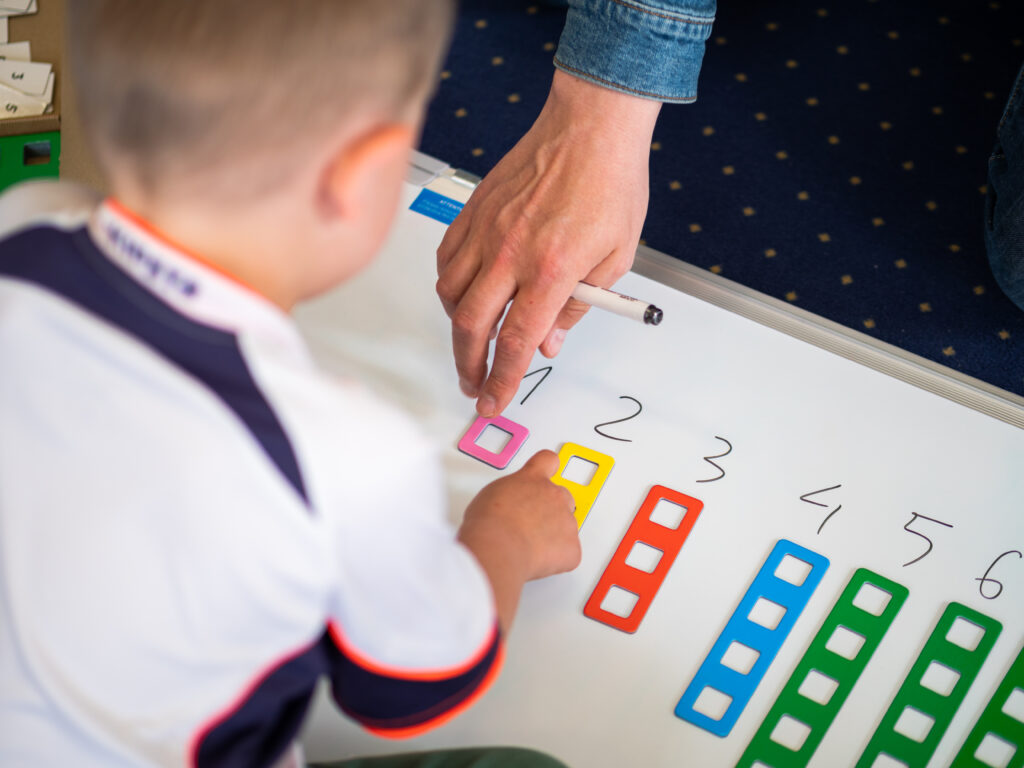



Learning, as we already know, is a cognitive process involving the modification of behaviour under the influence of experience, aimed at adapting the individual to the environment. It is also possible to treat the colloquial definition, which says that learning is the process of absorbing new information from the environment, as well as combining already existing information in the mind. It is therefore a relatively delicate process, the course of which is easily disturbed. If we want to effectively help a child learn mathematics, we need to know how to do it. Here is a list of what to do and what to avoid.
It goes without saying that we want to help the child. Sometimes, however, we want to do too much for the child, killing the child’s natural need to discover the world on his or her own. We don’t do the pupils’ tasks for them, as this can result in a lack of further motivation and in the child developing the belief that he or she doesn’t have to do anything because an adult will do everything for him or her anyway.
The system of punishments and rewards is widely used in the upbringing of children. Even if we are not aware of it, we often at least let the child know by our behaviour that we do not like something (punishment) or that something suits us (reward). In truth, however, this is not the most effective method of parenting. Especially because punishments and rewards are used by parents and teachers in an ill-considered and impulsive way. As a result, they do not focus on the goal, but only on eliciting a certain reaction in the child.

When the child is still at the stage of performing mathematical operations only on concrete objects, it is a good idea to ask him various tasks in the form of a story. If we choose tasks that require an action to be performed, the child will usually begin to imagine objects on his or her own, moving slowly from the concrete to actions on the abstract. However, don’t force the issue; if the child wants to count on fingers or blocks, let him.
In teaching children mathematics, it is important that children are aware that numbers are not just words, but that they mean something more. In order to prevent a narrowing of perspectives, the child should be taught numerals, as well as symbolic notations of numbers not only in order (0, 1, 2, 3,…), but also in unordered sequences.
Often when teaching children, we only focus on correcting the child’s mistakes, but we don’t focus on them enough to make the child understand what they did incorrectly. Therefore, it is important when doing exercises with a child to show both examples done correctly and those done incorrectly. In addition to just being aware of the mistakes not to make, the child will have a lot of fun and enjoyment during such lessons, which will result in better consolidation of the material.
If a child is at the stage of learning numerals and the symbolic notation of numbers, it is important that he or she quickly realizes that there are far more numbers than we are operating on. Therefore, whenever possible, try to widen the range in which the child moves, making it clear that there are infinitely many numbers.
When teaching your child, for example, it is easy to fall into various extremes of emotion. It is natural that when a child succeeds in something, we are happy, and we are sad or angry, when the child fails. However, don’t let this be felt, as it can result in a breakdown of confidence, as well as the formation of bad memories associated with learning mathematics.
Children, especially in the first stages of learning, acquire knowledge and skills by imitating other children and adults. Therefore, explaining a child, how to do something is generally not very effective. Show the child and ask him or her to do what we do, and he or she will certainly understand the issue better.
What is important in teaching is not to show the child the correct paths, but to allow new solutions to be created. Don’t allow creativity to be stifled in the child. When we see that the child has an idea for something different from what we want to show him, he should be allowed to do it.
Whether you are a parent or a teacher, it is important to know how important you are in your child’s learning process. You are the one who shows your child that the world is interesting and that it is worth exploring. You are the one who helps him with problems that seem unsolvable. It is your role to nurture your child’s development.